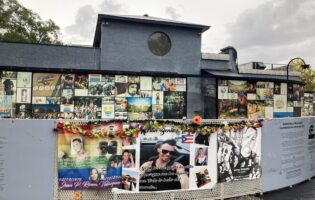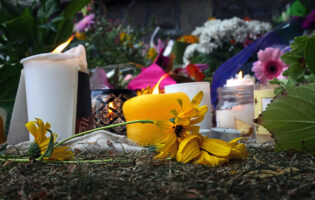
He Votes, She Votes
The Evolution of Gendered Voting in Germany The German federal election of 2017 brought up a novelty: for the first time, women were voting more left-wing than men. When I …

AGI Profiles: Hans-Georg Engelke
State Secretary at the Federal Ministry of the Interior and Community Hans-Georg Engelke, State Secretary at the Federal Ministry of the Interior and Community (Bundesministerium des Innern und für Heimat, BMI) has …
Episode 100: The Enduring Allure of Weimar Music and Culture
Max Raabe & the Palast Orchester have been playing the music of and inspired by the 1920s and 30s for almost forty years, to enormous success in Germany and internationally. …
Recent Authors
AGI provides knowledge, insights, and networks as tools to solve the challenges ahead.
Support Our Work
Franz Beckenbauer (1945-2024)
Germany’s Last “Kaiser” and His Legacies Franz Beckenbauer was Germany’s most important soccer personality—as a player, coach, soccer executive, and public figure. However, Beckenbauer stood for more than just soccer. …

Remembering Pulse
The Power of Community-Driven Collective Memory Natalie Adams-Menendez: Reflection Days before I turned seventeen, I awoke to news that 49 people had been killed and at least 53 others had …

Far-Right Violence and World Community
An Evolving Threat in a Changing World What the life and work of German-American Christian ethicist Reinhold Niebuhr (1892-1971) tells us about an old problem in a new context. Far-right …

Trending Now: Queerphobia
Decoding the Role of Trans- and Homophobic Narratives for Right-wing Online Mobilization in the United States and Germany When a group of prominent politicians from the German CSU party convened …

A Snapshot of LGBTQ+ Experiences and Communities in Florida
Orlando, Miami, and Ft. Lauderdale In November 2023, under the auspices of AGI, seven Americans and seven Germans met in Florida to explore the past, present, and future of LGBTQ+ …
Episode 97: LGBTQ+ Spaces, Public Art, and Memory
Public memorials have many functions: honoring victims, acknowledging history, or symbolizing values. After the 2016 mass shooting at the Pulse nightclub in Orlando, Florida, the site was transformed into an …

Hyperinflation Weimar
One hundred years ago, the Weimar inflation reached its peak. It remains Germany’s greatest economic crisis and has heavily shaped the history of the Federal Republic. Within a few months …






